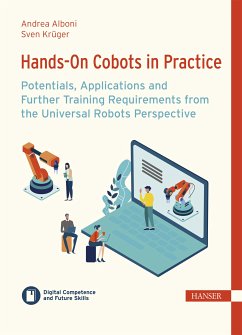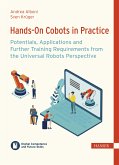by Andrea Alboni (General Manager Western Europe) and Sven Krüger (Global Master Trainer, Industry Program, both: Universal Robots (Germany) GmbH) from the handbook Digital Competence and Future Skills The invention and continuous development of cobots comes at a time of significant and far-reaching social and economic change. Companies are faced with increasing difficulties in finding qualified personnel. The cause is the shortage of labor, driven by demographic change. On the other hand, automation is still insufficiently anchored in the mindsets of many people working in manufacturing, or even has a negative connotation. Perceived as a foreign body, competitor, or job killer - the prejudices are characterized by the fear of losing one's job and are rooted in the lack of training and competence transfer in the automation field. Although digitalization and automation are no longer a future vision, young people are not adequately prepared before they start their careers in terms of what very likely awaits them later. In this context, this chapter emphasis the need and potential approaches for developing robotics skills. Pupils and students need to gain the skills they need for tomorrow's workforce. This calls for a constant exchange between schools, training companies and robot manufacturers. After all, the young people, who are now starting their apprenticeships are the skilled workers that many companies so urgently need. The handbook Digital Competence and Future Skills provides comprehensive insight into the future of competencies and learning and the transformation of business. For the first time, leading companies from a wide range of industries around the world provide concrete insights into their comprehensive approaches to transformation, competence management, culture change, and learning and development. In addition, leading scientists and institutions use the latest research findings to assess where we are today and what is to come in the future. #digicompetencebook #digikompetenzbuch #digikompetenzpodcast www.youtube.com/watch?v=NjxASUdSCAI
Dieser Download kann aus rechtlichen Gründen nur mit Rechnungsadresse in A, B, BG, CY, CZ, D, DK, EW, E, FIN, F, GR, HR, H, IRL, I, LT, L, LR, M, NL, PL, P, R, S, SLO, SK ausgeliefert werden.
Hinweis: Dieser Artikel kann nur an eine deutsche Lieferadresse ausgeliefert werden.









